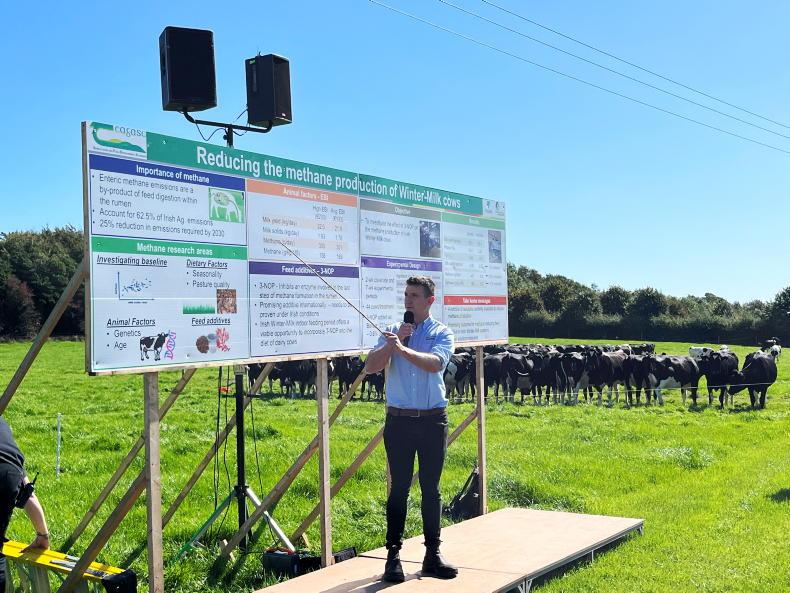New research will aim to develop more refined methane emissions factors for ruminant livestock in Ireland.
Dr Ben Lahart of Teagasc will lead the research project over a five-year period, beginning in March 2024.
At present, Ireland, like the majority of countries in the world, uses international default emissions factors to calculate the amount of methane produced by ruminant livestock through enteric fermentation (a digestive process).
These default values are based on the proportion of energy consumed by ruminants that is lost as enteric methane during the digestion of feed.
International data from livestock on a wide range of diets is used to derive these emissions factors and may not necessarily be representative of the animal types, feed offered and management practices common in Irish livestock production systems.
“The purpose of the project is to collect methane data from dairy, beef and sheep across the lifespan of the animal, from the growing phase right up to the production phase; to get that data and collate it into a database that could be used to refine the emissions factor for Irish conditions,” said Lahart.
Building on previous research
Lahart has previously undertaken postdoctoral research on emissions from dairy cows, which he is now building on.
“Some of the research emerging on dairy cows suggests that methane emissions coming out of dairy cows is lower than we previously assumed.
“We need to conduct research for all the other categories of ruminants and that is the purpose of the project,” he said.
The data will be collected through field-based experiments, which will test different diets and look at different genetic merit groups. Historical data will also be used to inform the database.
“The project will also identify management practices which can reduce methane output, such as improved grazing management and better breeding as well. Their effect on methane output will be examined.”
Lahart said the outcome of this work, collectively, will be more reflective of the animal type and management practices in Ireland’s agricultural sector.
“It will give a more accurate figure to the different ruminant livestock sectors across their lifespan.
“It will allow better, more accurate decisions to be made when calculating the amount of methane produced and to develop mitigation strategies,” he said.
Lahart has been awarded a research grant under the Department of Agriculture’s thematic research call 2023. The project is co-funded by the Department of Agriculture, Environment and Rural Affairs (DEARA) in Northern Ireland.
This project sees Teagasc partner with University College Dublin (UCD), the Irish Cattle Breeding Federation (ICBF) and the Agri-Food and Biosciences Institute (AFBI), Northern Ireland.






 This is a subscriber-only article
This is a subscriber-only article











SHARING OPTIONS: